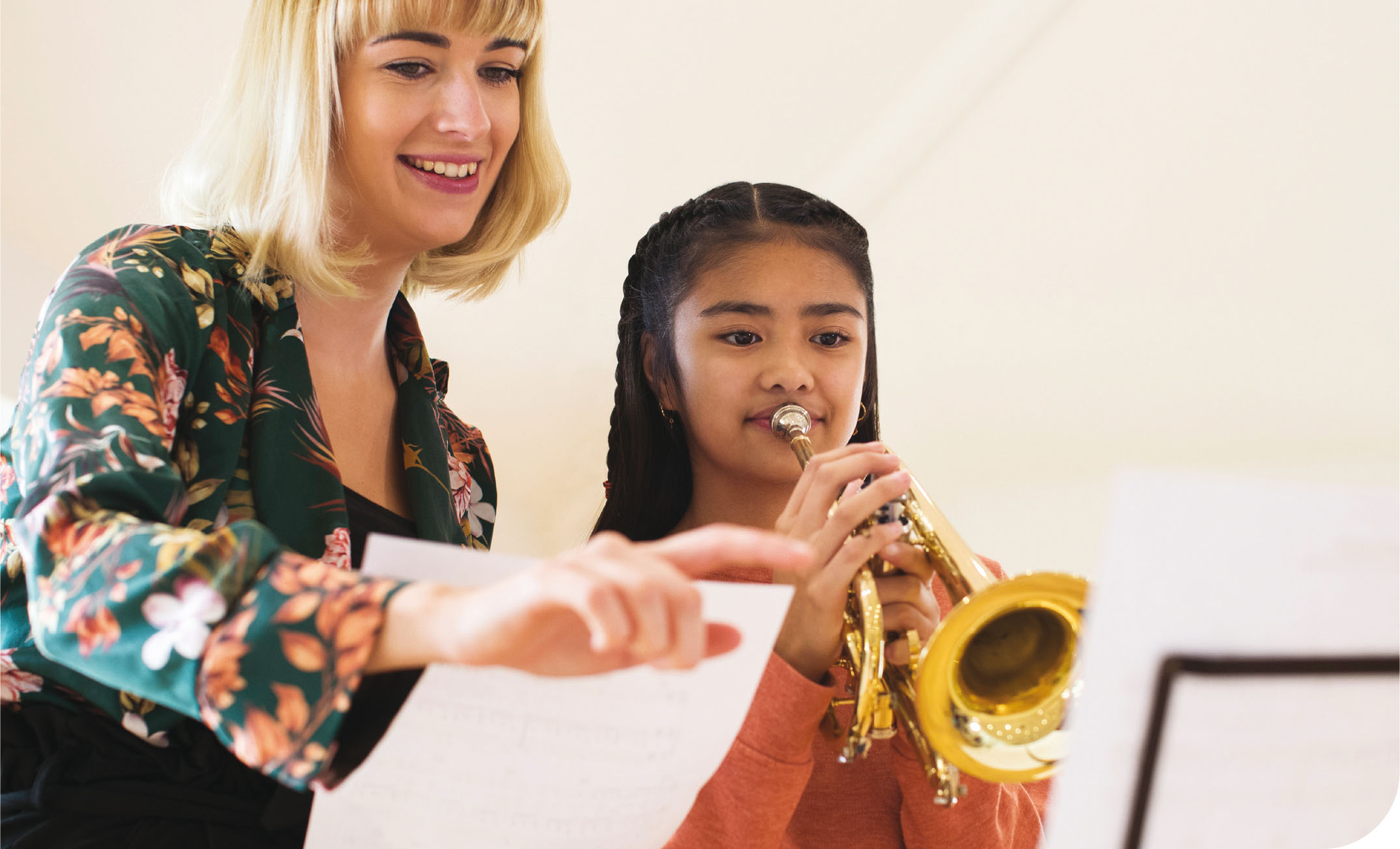
‘I actually enjoy taking my music exams now!’ declares Millie Longman. The 13-year-old pianist and flautist has taken exams with Trinity, ABRSM and, most recently, Music Teachers’ Board (for Grade 6 piano).
Music Teachers’ Board's (MTB) USP is that it offers ‘exams without an examiner’. The teacher records the exam with the pupil in a normal lesson using MTB's app, and then sends it off for assessment. There are no exam centres or visiting examiners. ‘It was extremely calming to have my teacher in the exam with me’, says Longman. ‘It felt like a normal lesson!’
‘MTB was founded and created by teachers who realised that although music exams are an invaluable tool, providing targets and motivation for pupils, traditional methods are not suitable for everyone. We felt there were many improvements that could be made to the exam process if we embraced technology,’ says MTB's chief examiner, trumpeter and teacher Mark Kesel.
MTB exams can be taken at any time. ‘The wait to take an exam to accommodate exam periods and examiner visits can demotivate pupils. It is difficult to progress during this period and students grow bored of playing the same music for months. MTB exams can be taken as soon as you are ready’, explains Kesel. Freedom from set dates booked at bricks-and-mortar venues means that there are lower costs, and MTB passes this on to candidates. This flexibility also means that MTB is able to guarantee that your examiner plays your instrument.
I asked Kesel whether there are differences in the syllabuses (which cover the full range of instruments and voices) as well as the assessment method. Rather than separate repertoire lists, MTB offers a single list for candidates to choose from. ‘This is to enable teachers to tailor the pieces chosen to suit what works best for their teaching methods and the musical interests of the pupil. On top of this, we allow candidates to perform free-choice pieces to replace pieces on our lists. Any music or musical style may be performed as long as it is of the same grade standard. To assist teachers in selecting appropriate repertoire, we offer guidance and an optional Free Choice Approval Service. This has been extremely popular with teachers as it effectively allows them to build a recital programme for grades using their favourite pieces and those they know work best for them and their pupils.
‘It is in the reading and listening sections of the exam that our syllabuses mostly differ from those of other boards,’ continues Kesel. ‘The option to perform a duet instead of aural tests is very popular with teachers and provides an enjoyable and performance-focused way to develop a pupil's listening skills.’ In fact, there are no unprepared elements in an MTB exam at all, so candidates are not asked to sight read. Instead, pupils perform ‘Reading Skills’ – clapping exercises designed to develop their understanding of reading rhythm.

MTB exams were accredited by Ofqual in 2018. Candidates from 36 different countries have taken grades, with numbers increasing during the Covid-19 pandemic. As I write, music teachers are into our sixth month of online teaching and many of us are using technology a lot more than we used to. MTB was ahead of the curve in many ways. ‘When we spoke to teachers at presentations way before the pandemic started, a common response was that this is such an obvious way to do grade exams now that they are surprised it is not the way all exam boards operate’, says Kesel. ‘So I don't think there is anything particularly surprising that we started this prior to Covid. It was just inevitable that in a technologically advanced world, there are new ways to do things that help solve problems that were originally more difficult.
‘It is not uncommon for candidates to stop learning an instrument following a particularly stressful traditional exam experience and that is a real shame. There is nothing wrong with a bit of stress, it is just when exams become terrifying that there can be a problem’, says Kesel. ‘Recording an MTB exam is less stressful and hopefully more enjoyable than a traditional exam, but it still has a sense of occasion and achievement for the candidate and is designed to provide a really positive culmination to all the hard work they have done. It also ensures that stress and nerves do not undo all the hard work the candidate has done in preparing for their exam’.
Longman agrees. ‘I really enjoyed taking my Grade 6 piano with MTB because I was so relaxed. I loved the thought of being able to record it again if I made mistakes. I feel confident that I can show the examiners my true ability because I am not nervous and therefore I play much better.’
Join LPO and MTB's Grade-1-a-thon
The London Philharmonic Orchestra (LPO) has teamed up with MTB to run a Grade-1-a-thon. LPO players have been challenged to learn a brand-new instrument and raise money to support the ensemble. From trumpet players tackling the viola, to double bassists getting to grips with the clarinet, the Grade-1-a-thon will see familiar faces from the LPO in very new surroundings.
You can support the Grade-1-a-thon by donating to the Play On Appeal, by sponsoring players on their Virgin Money Giving pages or taking on the challenge yourself. All of the funds raised through the Grade-1-a-thon will go to the Play On Appeal, helping sustain the Orchestra now and into the future. For every exam entry as part of the Grade-1-a-thon, MTB will donate 25 per cent of the entry fee to the Play On Appeal.








